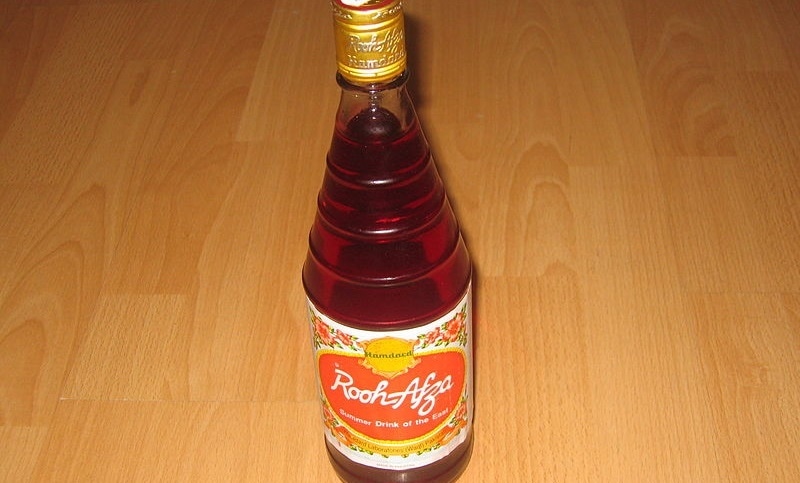As the holy month of fasting begins, Indian Muslims are faced with a crisis much bigger than the Ramazan-versus-Ramadan debate — there’s no RoohAfza in the market.
Breaking the fast in the evening, iftar, has traditionally consisted of pakoras, fruit chaat, dates and RoohAfza. An iftari without RoohAfza is just not the same, at least for North Indian Muslims.
RoohAfza, the sherbet made by Hamdard Laboratories, has been off the market for four to five months now, and is not available at online stores.
Production has restarted only recently, said one of the directors of Hamdard, Mufti Shaukat.
“RoohAfza will be back soon,” he said.
A receptionist at the Hamdard office gave an estimate of 15-20 days before the sherbet is back on the market.
Hamdard put out no official word on why it stopped production, but tried blaming it on the shortage of “raw material”. The truth, a source claimed, has to do with a family dispute.
What the dispute is about
The dispute is over the chair of Chief Mutawalli (equivalent to CEO) of Hamdard, which is currently held by Abdul Majeed, the great-grandson of Hakeem Hafiz Abdul Majeed, the Unani medicine practitioner who founded the company in old Delhi over a century ago. The company also owns traditional medicine brands such as Safi, Cinkara, Masturin and Joshina.
Abdul Majeed’s cousin Hammad Ahmed has been trying to take over the company, claiming rightful inheritance. He even went to court for it, and the legal battle put a stop to the production of RoohAfza, sources said.
Hamdard is registered as an irrevocable Islamic trust, known as a waqf, and under its rules, transfers 85 per cent of its profits to the Hamdard National Foundation, an educational charity. The foundation runs, among other institutions, the Jamia Hamdard in Delhi. The deemed university has the distinction of running the only private medical college in Delhi, and this valued institution, sources say, is a major reason for the family dispute.
The battle went straight up to the Supreme Court, which in its judgment on 3 April, refused to give interim directorship to Ahmed.
No comment on why production stopped
RoohAfza’s social media accounts have been dormant since September 2018, only coming out of the deep on Facebook recently to say they’re “overwhelmed by the love” shown by their patrons, hinting the sherbet will be back in the market soon.
Asked why production had stopped and for how long, director Shaukat refused to comment, while Chief Mutawalli Abdul Majeed did not answer calls and messages.
Sources said the production of RoohAfza has restarted only under pressure from Muslims in view of Ramazan, and not because the legal dispute has reached any resolution. There have even been rumours of RoohAfza shutting down.
Pakistan’s gain
Founder Hakeem Hafiz’s younger son Hakeem Mohammed Said had migrated to Pakistan and established Hamdard Laboratories Waqf Pakistan soon after Partition.
This entity has been an indirect beneficiary of the legal dispute raging in India, since the sales of imported Pakistani RoohAfza have shot up. Although it’s not readily available in stores, the Pakistani version is selling for over Rs 375 a bottle, as against Rs 145 for the one manufactured in Ghaziabad.
Hamdard’s plans to modernise its business and grow its revenues have been stalled due to the dispute. Meanwhile, Pakistani Hamdard is growing by leaps and bounds, having given a production licence in Bangladesh and dominating global exports of RoohAfza. It has even launched a carbonated version of RoohAfza in Pakistan, called RoohAfza Go.
This article originally appeared at theprint.in and has been reproduced with permission.














































